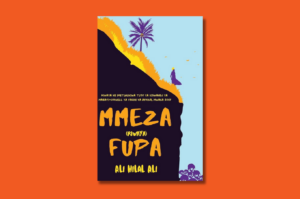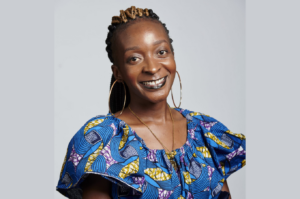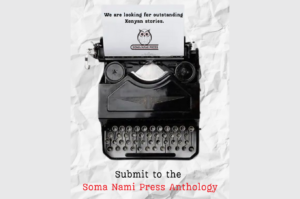
If you are interested in African science fiction and climate futures, we have the perfect podcast for you. Leading sci-fi podcast Imaginary Worlds teamed up with Nigerian speculative fiction author Wole Talabi to create a truly insightful podcast episode released on April 10.
Imaginary Worlds is a podcast about sci-fi, fantasy, and other genres of speculative fiction hosted by Eric Molinsky. The show’s assistant producer is Stephanie Billman. In “Episode 248: African Sci-Fi Looks to a Future Climate”, Wole Talabi stars as a guest, discussing his work, his recent collection of short stories Convergence Problems, and the world of cli-fi from African authors. Chinelo Onwualu and Suyi Davies Okungbowa also make guest appearance in this episode.
In the 40-minute podcast, the three guests discuss a variety of topics ranging from the meaning of Africanfuturism, the link between Nigerian literature and the environment, the difference between African cli-fi and Western cli-fi, and much more. Read the full description of the episode below:
When the writer Nnedi Okorafor coined the term Africanfuturism, she wanted to distinguish sci-fi written about Africa from Afrofuturism, which is focuses on the experiences of Black people in the diaspora. Africanfuturism mixes the traditional with the futuristic in a way that resembles modern life in Africa, and many of these stories grapple with climate change. Although the writer Chinelo Onwualu says cli-fi isn’t a subgenre for African writers. It’s often baked into a lot of Africanfuturism because the continent is already at the forefront of climate emergencies. And the writers Suyi Davies Okungbowa and Wole Talabi explain that Africanfuturist cli-fi isn’t as dystopian as Western cli-fi. These visions of the future may feel daunting but there is often a sense of hope and the solutions are more community focused. The actress Nneka Okoye reads from their stories, and other works by African writers.
The podcast episode is also accompanied by a fascinating music and reading list. Go here to listen to the podcast and access the lists that accompany it.
You can also find the podcast on all your usual platforms – Spotify, Apple Podcasts, Google Podcasts, and elsewhere.









COMMENTS -
Reader Interactions